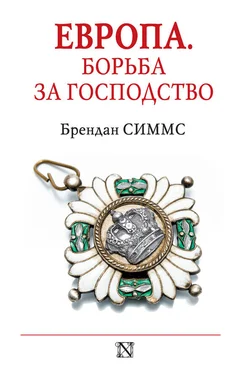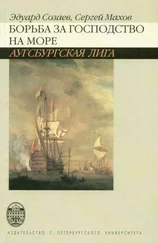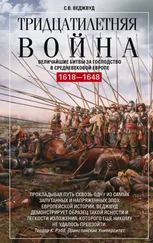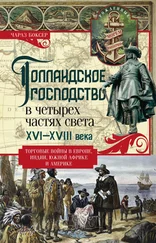Hanna Schissler, Preussische Agrargesellschaft im Wandel. Wirtschaftliche, gesellschaftliche und politische Transformationsprozesse von 1763 bis 1847 (Göttingen, 1978).
Lars Atorf, Der König und das Korn. Die Getreidehandelspolitik als Fundament des brandenburgisch-preussischen Aufsteigs zur europäischen Grossmacht (Berlin, 1999), pp. 86–139.
Frederick William’s warning is quoted in Helmut Neuhaus, ‘Kronerwerb und Staatskonsolidierung. Der Aufstieg Brandeburg-Preussens im 18. Jahr-hundert als Forschungsproblem’, in Christiane Liermann, Gustavo Corni and Frank-Lothar Kroll, Italien und Preussen. Dialog der Historiographien (Tübingen, 2005), pp. 27–37 (p. 29).
D. W. Hayton, James Kelly, and John Bergin (eds.), The eighteenth-century composite state. Representative institutions in Ireland and Europe, 1689–1800 (Basingstoke, 2010), especially pp. 4–5.
Michael G. Müller, Polen zwischen Preussen und Russland. Souveränitätskrise und Reformpolitik, 1736–1752 (Berlin, 1983), especially pp. 253–4 and 152–200.
Herbert H. Rowen, The princes of Orange. The Stadholders in the Dutch Republic (Cambridge, 1988).
Simms, Three victories, pp. 103–4.
John Brewer, The sinews of power. War, money, and the English state, 1688–1783 (London, 1989).
Hasan Kurdi is quoted in Virginia H. Aksan, Ottoman wars 1700–1870. An empire besieged (Harlow, 2007), p. 92.
Suraiya Faroqhi, The Ottoman Empire and the world around it (London, 2007), pp. 27–8.
Daniel Goffman, The Ottoman Empire and Early Modern Europe (Cambridge, 2002), pp. 117–18, and George S. Rentz, The birth of the Islamic reform movement in Saudi Arabia. Muhammad b.‘Abd al-Wahhab (1703/4–1792) and the beginnings of Unitarian empire in Arabia (London, 2004).
The Abbé de Saint-Pierre is quoted in Wilson, Fleury, p. 42. Frederick William’s remarks on colonies are to be found in Clark, Iron kingdom, p. 93.
Здесь и далее в большинстве случаев высказывания отечественных государственных деятелей, политиков, дипломатов и др. цитируются не по первоисточникам, а в переводе с английского; это позволяет оценить, как их слова в свое время оценивались – и продолжают оцениваться сегодня – носителями западной политической культуры . Примеч. ред.
Münnich is quoted in Lavender Cassels, The struggle for the Ottoman Empire, 1717–1740 (London, 1966), p. 100.
The Ottoman observer (a Kadi, or senior legal gure) is quoted in Cassels, Struggle for the Ottoman Empire, p. 154.
The British envoy is quoted in ibid., p. 24.
Lord Bathurst is quoted in Simms, Three victories, p. 259.
Philip Wood ne, Britannias glories. The Walpole ministry and the 1739 war with Spain (London, 1998).
Quoted in Simms, Three victories, p. 275.
Quoted in ibid., p. 251.
Quoted in ibid., p. 274.
Johannes Kunisch, Friedrich der Grosse. Der König und seine Zeit (Munich, 2004), pp. 159–84.
Neuhaus, ‘Kronerwerb und Staatskonsolidierung’, in Liermann et al. (eds.), Italien und Preussen, pp. 27–37 (quotation p. 27).
Tim Blanning, ‘Frederick the Great’, in Brendan Simms and Karina Urbach (eds.), Die Rückkehr der ‘Grossen Männer’. Staatsmänner im Krieg – ein deutsch-britischer Vergleich 1740–1945 (Berlin and New York, 2010), pp. 11–20 (quotation p. 12).
Структура британского кабинета министров, отвечавшая за развитие соответствующего региона королевства. В 1782 г. Северный и Южный департаменты лишили функций надзора за внутренними делами и объединили в Форин офис – министерство иностранных дел . Примеч. ред.
Newcastle is quoted in Simms, Three victories, p. 288.
Peter Baumgart, ‘The annexation and integration of Silesia into the Prussian state of Frederick the Great’, in Mark Greengrass (ed.), Conquest and coalescence. The shaping of the state in Early Modern Europe (London, 1991), p. 160.
P. G. M. Dickson, Finance and government under Maria Theresia, 1740–1780, 2 vols. (Oxford, 1987), especially vol. I, pp. 1, 266–7 and 270–71.
Baruch Mevorach, ‘Die Interventionsbestrebungen in Europa zur Verhinderung der Vertreibung der Juden aus Böhmen und Mähren, 1744–1745’, Jahrbuch des Instituts für deutsche Geschichte, IX (1980), pp. 15–81 (quotations pp. 34 and 54).
The quotations are in Simms, Three victories, p. 289.
For the quotation see Rowen, The princes of Orange, p. 163.
Gyllenborg is quoted in John P. LeDonne, The Russian Empire and the world, 1700–1917. The geopolitics of expansion and containment (New York and Oxford, 1997), p. 35.
Francine-Dominique Liechtenhan, La Russie entre en Europe. Elisabeth Ière et la succession de l’Autriche (1740–1750) (Paris, 1997), especially pp. 46–9.
Имеются в виду события 1740–1741 гг.: по завещанию Анны Иоанновны регентом при малолетнем императоре Иване VI становился герцог Бирон; после низложения Бирона регентом стала мать Ивана Анна Леопольдовна. В конце 1741 г. состоялся военный переворот, и на трон взошла Елизавета . Примеч. ред.
Stainville is quoted in Rohan Butler, Choiseul. Vol. 1: Father and son, 1719–1754 (Oxford, 1980), p. 700. For French fears of the advancing Russians see ibid., pp. 724–6 (Sandwich quotation p. 724).
Thomas E. Kaiser, ‘The drama of Charles Edward Stuart, Jacobite propaganda, and French political protest, 1745–1750’, Eighteenth-Century Studies, 30 (1997), pp. 365–81.
Quoted in Hagen Schulze, The course of German nationalism. From Frederick the Great to Bismarck, 1763–1867 (Cambridge, 1990).
Quoted in T. C. W. Blanning, ‘The Bonapartes and Germany’, in Peter Baehr and Melvin Richter (eds.), Dictatorship in history and theory. Bonapartism, Caesarism, and totalitarianism (Cambridge and New York, 2004), p. 54.
Cited in Daniel A. Baugh, ‘Withdrawing from Europe: Anglo-French maritime geopolitics, 1750–1800’, International History Review, 20, 1 (1998), pp. 14–16.
Читать дальше
Конец ознакомительного отрывка
Купить книгу












